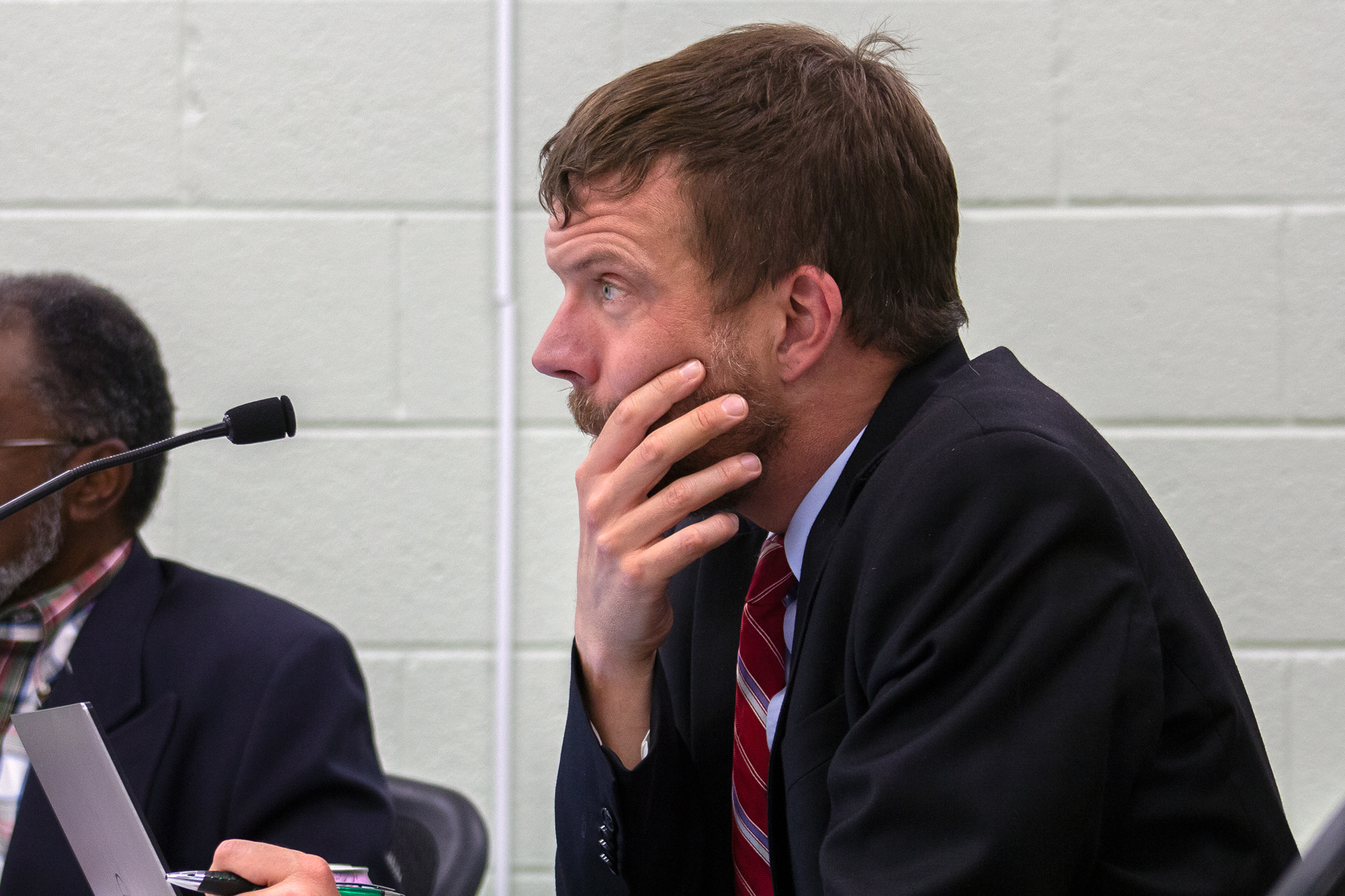Views expressed in opinion columns are the author’s own.
Like many in the College Park community, I was shocked and saddened by the deeply disturbing charges brought against ex-mayor Patrick Wojahn. It’s disappointing our city is receiving a national spotlight for such a disastrous situation, and I hope the victims of this tragedy receive justice soon.
It’s eerie to see a man who was once looked upon as a leader in our community, now sitting in a jail cell awaiting trial for 56 counts of possession and distribution of child pornography charges. I feel as though this entire city has been betrayed.
This situation has also made me worried about the backlash the gay community could unjustly incur because of Wojahn’s alleged actions. Wojahn is a gay man, which is an inextricable part of his identity. However, it doesn’t mean his abhorrent behavior is an inextricable part of the LGBTQ+ community.
As the media and American public have an unquestionably poor record of sensationalizing and fixating on someone’s LGBTQ+ identity in the wake of their actions, we cannot let this instance be reduced to ammunition for anti-gay activists like it has before.
Some outlets have already failed. The media has already invited attribution of Wojahn’s actions to the LGBTQ+ community. In reporting his arrest, some news outlets such as Townhall have written pieces that focus on Wojahn’s role in gay activism, specifically how he branded himself as a role model for LGBTQ+ youth, throughout their discussion of his alleged crimes. Even more prominent newspapers such as the New York Post centered its story on Wojahn’s friendship with U.S. transportation secretary Pete Buttigieg, who is also gay.
Wojahn’s sexuality has nothing to do with his arrest — a fact these outlets choose to ignore. This reporting poses a tremendous setback in developing an open, inclusive environment for the entire LGBTQ+ community in College Park, and potentially across the country.
The LGBTQ+ community has been fighting the harmful stereotype of being child abusers since the 1970s. When the Save Our Children movement emerged as a powerful anti-gay group, it worked to overturn an ordinance that prevented housing discrimination based on sexual orientation. Their leader, Anita Bryant, asserted that homosexual teachers would likely molest children.
Since then, the trope of gay men committing pedophilia has pervaded both media and politics. Many Republicans hurl accusations of pedophilia at their opposition — especially toward those in the LGBTQ+ community — to invalidate their views. Furthermore, the trope has been featured prominently in movies and television, appearing on tremendously popular shows such as Law & Order and Family Guy.
Kevin Spacey, for example, contributes to this stereotype by using sexuality to deflect criticism from himself. When he was accused of sexually assaulting a 14-year-old actor when Spacey was 26, Spacey’s first move was to come out as gay in the same tweet in which he denies the allegations. Because Spacey brought attention to his sexuality in lockstep with the accusations, it invites people to conflate his non-problematic identity as a gay man with his vile actions.
Given how entrenched this trope is in American media and politics, the clear question arises as to what we can do to end this stereotype.
The media has a journalistic obligation to soundly dispel the pernicious myth of LGBTQ+ people being more likely to commit acts of pedophilia. A simple Google search would yield an article from the Southern Baptist newspaper, Baptist Press, which proclaims homosexuals commit pedophilia at higher rates. However, with a majority of Southern Baptists believing homosexuality should be discouraged, it’s hard to believe this reporting is unbiased. The reality is there are a litany of studies that have tried and failed to find any demonstrable link between homosexuality and pedophilia.
If any article is going to mention Wojahn’s sexual identity in reporting his crimes, it needs to clarify that his sexuality did not contribute to his behavior. There are numerous stories, such as this brief article from USA Today, that do not even mention the gender of Wojahn’s victims or his sexuality. This type of reporting is ideal because it removes the potential of a scapegoat and centers the blame directly on Wojahn as an individual.
Any news outlet that reports on this issue with information regarding his sexuality should also cite the overwhelming evidence that suggests the link is false. Doing so will make it easy for anyone who might believe the trope to see the mountain of evidence that debunks it.
While sound reporting of instances of exploitation is crucial, it should obviously never happen in the first place. The fact that child sex abuse material is spread is a resounding failure of our society, and we must work to levy harsh punishments for any perpetrators of this despicable crime. We need to rally around the victims who Wojahn allegedly exploited. However, it is equally vital that we do not let the perpetrator of this crime overshadow the stories of the victims.
In situations as disturbing as this, the community at large must maintain perspective. When someone’s actions are so unimaginably cruel, it is dangerously easy to scapegoat entire communities for the deplorable actions of a few. However, I implore students and the rest of the College Park community not to fall into this trap. Honest, fact-based reporting will prevent further harm.
Ravi Panguluri is a sophomore computer science and statistics major. He can be reached at rpangulu@umd.edu.



